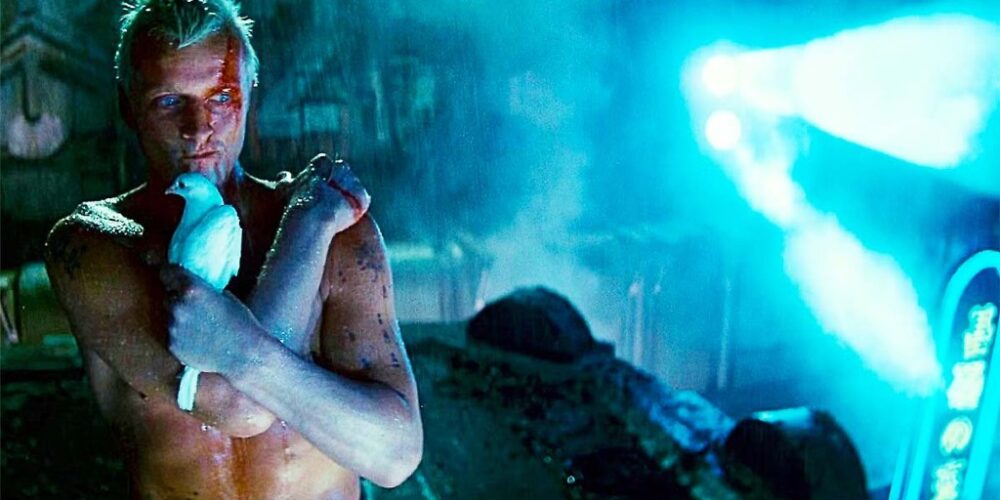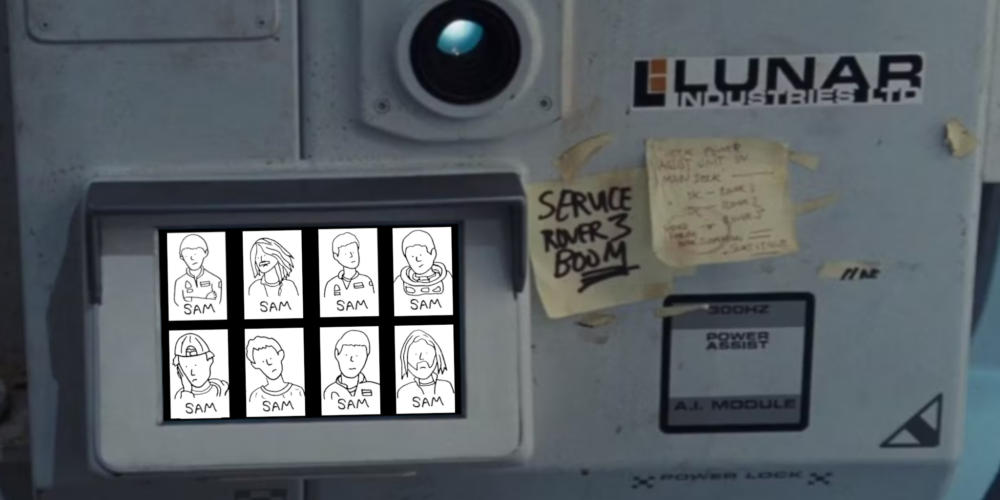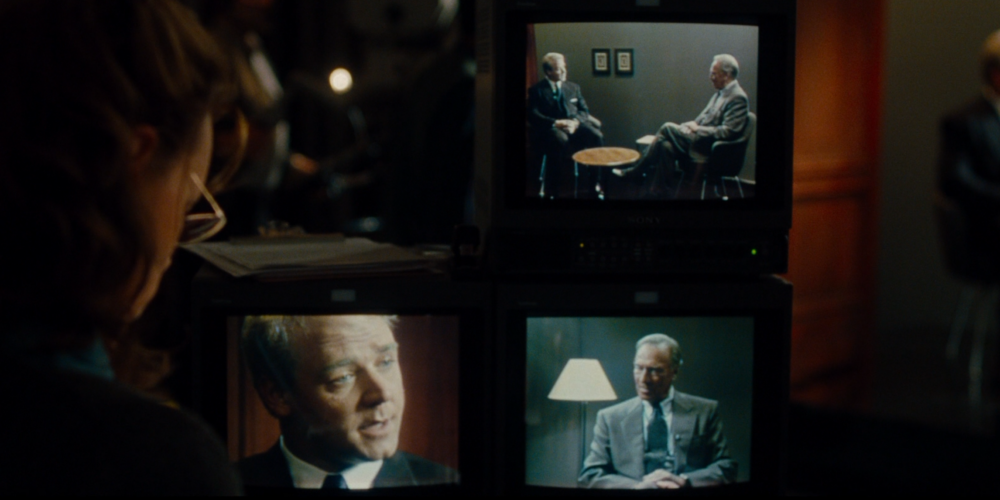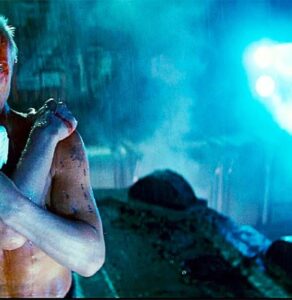
Human Enough
|Harry Mackin| "Did you ever take that test yourself?" Whenever an institution of power has wanted to exploit, enslave, or just murder another group of people, they've gotten away with it by convincing everyone else that group isn't really human. There have been...
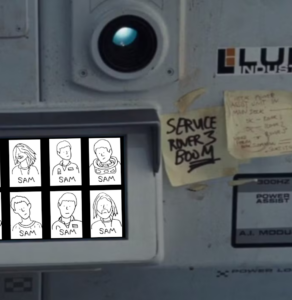
I am the One and Only: Moon and the Advent of Loneliness
|Nicole Rojas-Oltmanns| In 2020 when COVID-19 shut down most of our social connections, I, like many caregivers, was the opposite of lonely. While so many were alone at home, I was inundated with constant human interaction. While I had purpose...
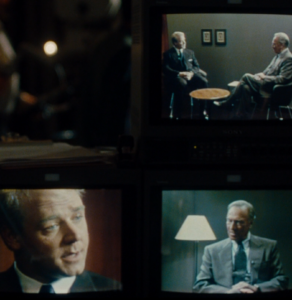
“That Means You Don’t Talk”: Michael Mann’s The Insider
|Steve Rybin| Four years separate Michael Mann’s crime drama Heat (1995) and his next movie, The Insider (1999). While Heat’smonumental pairing of Al Pacino and Robert De Niro is considered by many to be the highlight of the director’s career, The Insider remains the Mann film...
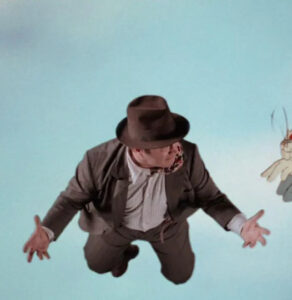
The Art of the Reference in Who Framed Roger Rabbit
|Jackson Stern| I remember when I was eleven or twelve and I watched Who Framed Roger Rabbit for the first time. Around the age of ten, I caught the cinephile bug after discovering classics like King Kong and Casablanca but before that

Michael Clayton and Tony Gilroy’s American Conscience
|Ryan Sanderson| Michael Clayton plays in glorious 35mm at the Trylon Cinema from Sunday, March 1st, through Tuesday, March 3rd. For tickets, showtimes, and other series information, visit trylon.org. “You sharpen the human appetite to the point where it can split atoms with its desire, you build egos the size...
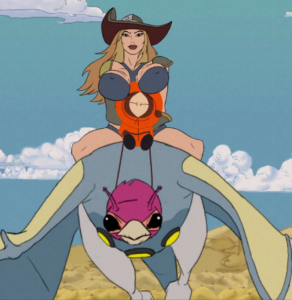
Loc-Nar Never Stood a Chance
|Elizabeth Mathers| My (unknowing) introduction to Heavy Metal (1981) was South Park's Season 12, Episode 3 "Major Boobage." An absolutely transcendent piece of comedy. I know others also took this episode as an entry point into finding one of the greatest animated films. Heavy Metal is the gift that keeps on giving—great art,...
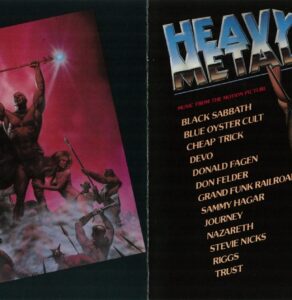
CARTOONS! CHAOS! CLASSIC ROCK! How HEAVY METAL Almost Became What I Wanted—and Why That Almost Matters
|Jay Ditzer| The reputation of the animated cult classic Heavy Metal rests on promises it largely can’t keep. Sure, it’s full of sex, drugs, and rock ’n roll, at least superficially. What it actually delivers is something more revealing. The film is deeply of its era, which is both a strength and a weakness.
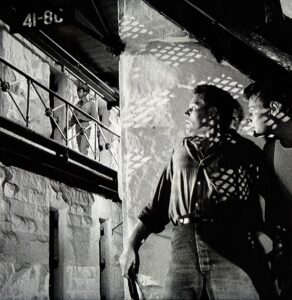
Folsom Prison Plays Itself
|J.R. Jones| Opened in 1880, about 12 miles north of San Francisco, Folsom State Prison occupies the former site of a mining camp along the American River. The original prison buildings and walls were constructed with hand-cut granite from the surrounding hills, which gives...
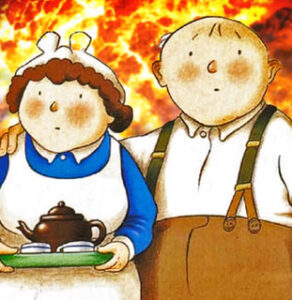
When The Wind Blows and How Nostalgia Lies to Us
|Wil McMillen| Everyone is scared. Everyone is broke. Unemployment is skyrocketing. There’s a madman in the White House who is threatening to blow up anyone who looks at him wrong. It’s 1983, and I’m eight years old. Nostalgia for the 1980s is amusing to me. The 80s, at least the early 80s...
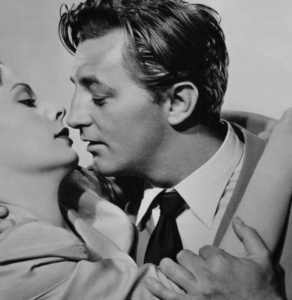
Robert Mitchum and Jane Greer Could Make Anything Interesting
|Reid Lemker| Sometimes, it’s a miracle that films get made, and RKO’s 1949 film, The Big Steal, is one of those miracles. Directed by Don Siegel and starring Robert Mitchum, Jane Greer, and William Bendix, The Big Steal was originally conceived as a vehicle for RKO star George Raft, but...

Toonami Days: How Anime Like Vampire Hunter D Saved a Small Town Kid
|Andrew Neill| The lights are out except for the TV. Outside of its pulsing glow, the bedroom is painted with deep blue shadows, which extend through the window, out onto the snowy front yard, across the icy street, a few blocks of civilization, and then miles and miles...
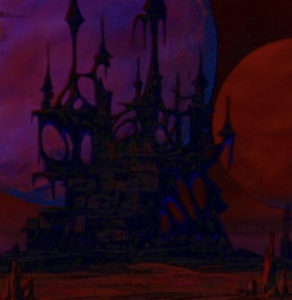
My Short Bestselling Memoir about the Japanese Animated Film Vampire Hunter D
|MH Rowe| A lot of art seems gruesome and tasteless when you’re twelve or thirteen years old. It repels and attracts you for exactly that reason. Later, when you’ve reached maturity or thereabouts and are better equipped with the faculty of judgement, you may have a...

American Gigolo: A Film Noir with 1980s Sheen?
|Penny Folger| Paul Schrader’s American Gigolo, starts out with all the luster and flash of the 1980s though it was actually shot in 1979. Yet, stylistically, it preternaturally defines the decade that was to come. “It’s almost setting the...
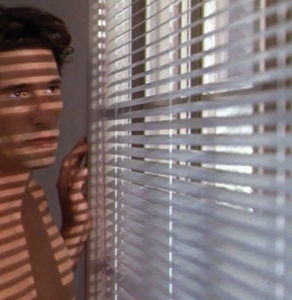
The Gap in Lauren Hutton’s Teeth
|MH Rowe| The most interesting films tend to be those that go all the way into a gnarly little dreamworld. Not that the dreamworld of American Gigolo seems gnarly at first. The story begins by reveling in the easy brilliance of California sunshine. There’s no glare. No one sweats. A breeze...
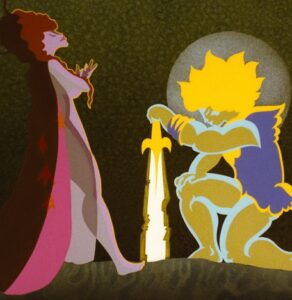
Son of The White Mare: Formalistic Creativity Bursting Through Repression
|Ed Dykhuizen| Communism does not create a great environment for filmmaking. Communist governments tend to try to control everything, especially how people think. All art becomes state propaganda limited to a handful of party-friendly messages and forms. You have to...
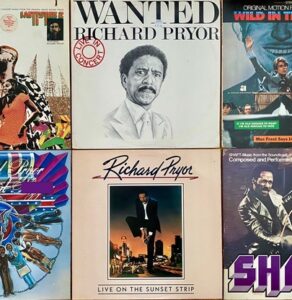
First as Tragedy, Then as Tragedy
|Matthew Tchepikova-Treon| A young Richard Pryor sits inside a dark, nondescript bar. “California is a weird state,” he says, “because they have laws for pedestrians—you know like, you cross the street—they have laws for pedestrians, but they don’t have laws for people...

Giorgio Moroder: A Syllabus
|Sophie Durbin| would strongly recommend that everyone who’s anyone attend Berlin & the Trylon Present: A Celebration of Giorgio Moroder on Thursday, February 5. While our beloved Trylon Cinema does well at staying/excelling in its lane, the occasional creative foray into other local...
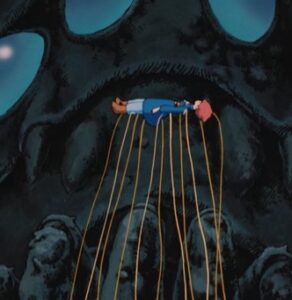
Gone with the Wind Rider: Shintoism in Hayao Miyazaki’s Nausicaä of the Valley of the Wind
|Lars Johnson| In the early 1980s, an idealistic Japanese animator entered into an agreement with a magazine to create a manga on the condition that it would not be turned into a feature film. The series immediately took off and became popular. The publisher, presumably caught...
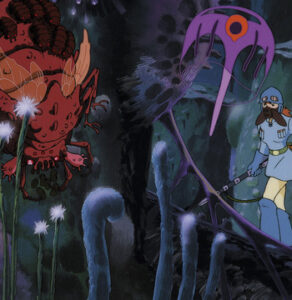
Don’t Stomp On Bugs
|Noah Frazier| Bugs are gross. They look scary. They’ve got creepy legs and weird pincer mouths. A lot of them have an alarming amount of eyes. They bite, they sting. Sometimes they…let me double check my notes here…drink! your! blood! Like it’s a tasty treat to them!...
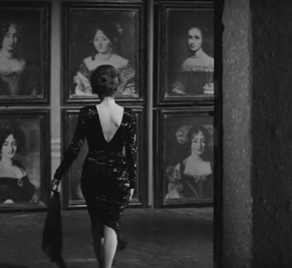
When in Rome: La Dolce Vita and Life’s Imitation of Art
|Courtney Kowalke| On October 21, 2025, around 1:00 pm, YourClassical MPR played Ottorino Respighi’s “Fountains of Rome.” I know because I was listening to the station in my car. As I drove through Uptown, I listened to Lynne Warfel wax poetic about the piece. She pointed out that the...
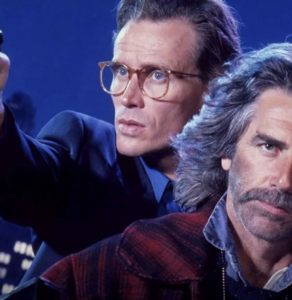
We’re All Buddies Here
|Devin Warner| I am so happy that this movie is being shown. While waiting in line to buy a ticket for the first 80’s Action Extravaganza at the Trylon, John wandered the line and asked everyone for movies they would like to see. My response was Shakedown, a buddy cop action...
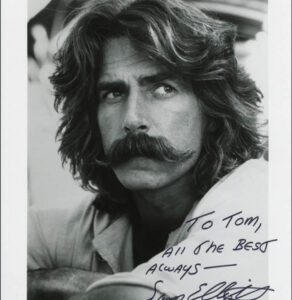
It’s got Sam Elliott in it.
|Patrick Clifford| I recently bought a meatloaf and mashed potato sandwich from a gas station. I was on a road trip of sorts and had stopped out of need. For gas, a bathroom, and something to eat. The meatloaf and mashed potato sandwich was suffering under a heat lamp...

Okinawa, Baby: Exploration, Exes, & Extreme Private Eros
|Chelli Riddough| When my ex-boyfriend Chris and I were splitting up, we had a breakup photo shoot. Our friend Zoey came over and took a series of photographs of us in the living room: hugging, holding the cat, sitting side by side. At the time, my close friends...

The Shocking Direct Cinema of The Emperor’s Naked Army Marches On
|Ed Dykhuizen| Throughout the twentieth century, few documentaries managed to be both truthful and entertaining. Some were dry and deadly serious explications of important societal issues that, while enriching in the end, could feel a bit like homework. Others that provided thrills...

